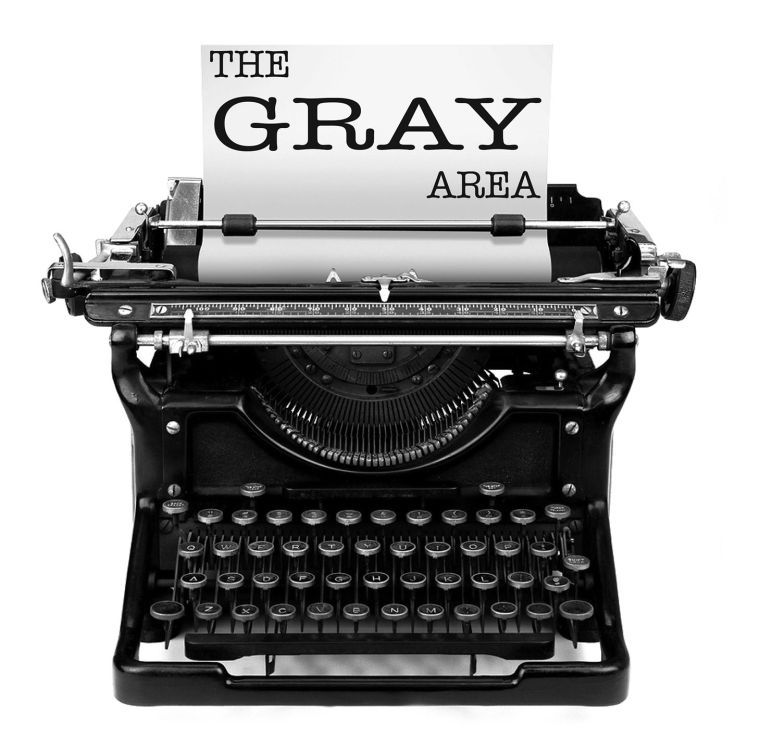Gray Area – Facebook fails to acknowledge rape jokes as hate speech
April 9, 2014
We’ve all indulged in a little internet surfing to laugh at ridiculous memes, but when certain pictures surface cracking jokes about suicide, domestic violence and rape, there needs to be some regulation.
Out of all social media sites, Facebook is probably best known for having these types of images, posted from various pages – a very popular one being No Hope For the Human Race. The page administrators consistently post these seemingly harmless memes with cheesy jokes or outrageous stereotypes, but the page is also known for having its images reported – constantly.
Having reported an image myself, on a different Facebook page, I was incredibly disappointed to read that the post did not violate Facebook’s community standards. The image was of a woman, blindfolded with tape over her mouth, and the words, “Don’t wrap it and tap it; Tape her and rape her.”
Go ahead and let that sink in for a minute. A blatant rape joke does not violate Facebook’s standards? Something is amiss.
“Facebook’s current photo policy is not implemented when it comes to the violence and sexual objectification of women,” said junior women’s studies major Tina LeMoine. “The fact that violent images are not categorized as a form of hate speech or as malicious portrayals of women, reflects the inequality and lower status women still have in this country. If women were truly equal to their male counterparts, these images would be almost non-existent and there would be consequences to the persons creating these types of materials.”
Several times administrators of the site have deleted and banned users for posting photos of women breastfeeding their babies.
Every time a breastfeeding picture has been reported and removed, Facebook makes an apology, but nothing ever changes. Leading us to question how a mother, using her body to naturally feed her infant is more offensive than a meme about rape.
“Facebook needs to work harder on distinguishing the difference between sexist, racist, homophobic photos versus photos that prompt change,” said alumna Melissa Warren. “I posted a photo of a Victoria Secret model and a woman breastfeeding. The woman breastfeeding was reported because it was seen as offensive. So we can post pictures showing a woman’s body, but as soon as we post a picture that depicts the natural use of a woman’s body, that is seen as obscene. Makes perfect sense.”
Rape culture is in full swing, and it’s only getting worse.
A few weeks ago, I posted an image of a half-naked woman with the words, “Still not asking for it” painted across her bare torso. The image, protesting slut shaming of rape victims, was instantly reported under nudity and pornographic material, and is currently still under investigation where Facebook will decide if it stays or not.
I immediately went to read the policy, which states: “Facebook has a strict policy against the sharing of pornographic content and any explicitly sexual content where a minor is involved…We aspire to respect people’s right to share content of personal importance, whether those are photos of a sculpture like Michelangelo’s David or family photos of a child breastfeeding.”
Interesting, considering the multiple breastfeeding pictures that are still being removed from Facebook, but girls can post borderline naked pictures of themselves and everything is just peachy.
It doesn’t take a prude or someone lacking a sense of humor to see that something is wrong with Facebook’s implementation of its community standards. Rape jokes are not funny and breastfeeding isn’t offensive – end of story. Yet daily we can see memes like “rape sloth” with jokes such as, “She put me in the friend-zone…so I put her in the rape-zone” posted on the Rape Sloth twitter page.
“I understand everyone has the power to speak freely, but when it promotes sexism and violence, it needs to be silenced. There is a difference between inciting change and equality and inciting oppression and brutality,” Warren said. “Facebook needs to be more diligent in removing oppressive photos that promote rape culture. I understand no one can fully eradicate Facebook of those photos, but an effort will hopefully prompt change.”
Many of us are left wondering what is so offensive about a woman whose point about rape culture was better proved by being half-naked, but people are not offended by a photo of an unconscious woman with the words, “Slipped the bitch a rufie. Bitches love rufies.”
“If there was a zero tolerance for these types of hateful images they would not be up for as long as they are. These images continue to be posted and allowed because the people in control are wrapped up in it as well,” LeMoine said. “Our generation has been desensitized to these issues to the point where raping has become a normalized and acceptable practice. Slut shaming and victim blaming are at an all time high.”
Pages have started popping up encouraging people to use the hashtag FBrape in order to put pressure on Facebook to remove images promoting rape and sexual assault – things that should already fall under their definition of hate speech, but don’t.





























































































































